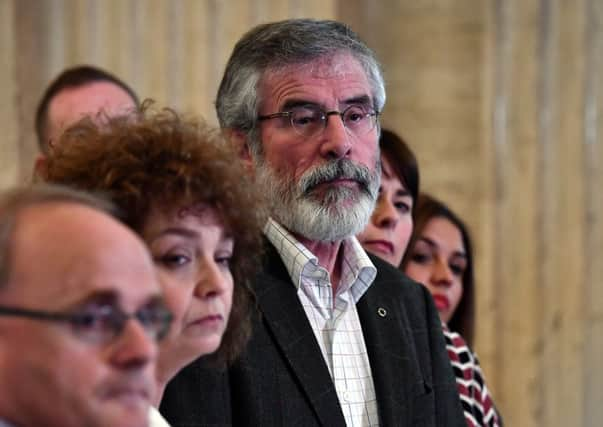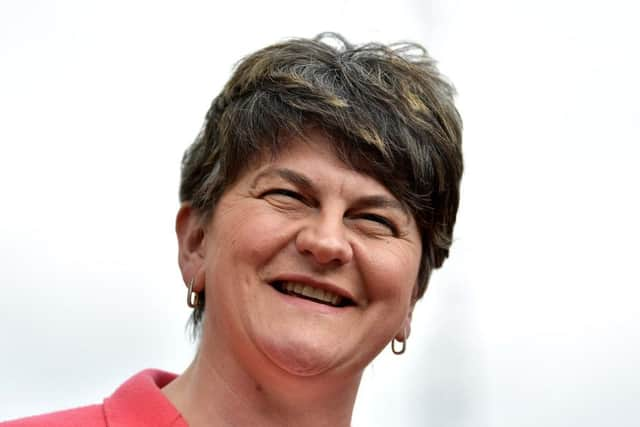DUP and Sinn Fein at loggerheads over Westminster power deal


Mrs Foster delivered the blunt message to the republican party as she rejected its claim the anticipated DUP/Conservative deal at Westminster would undermine the political process in Northern Ireland.
She warned that a consequence of failing to re-establish a power-sharing executive would be the return of direct rule, with decisions on devolved issues being taken by the London government.
Advertisement
Hide AdAdvertisement
Hide Ad“If others decide that they are not coming back into the devolved administration here in Northern Ireland then those issues will have to be dealt with at Westminster,” she said.


“It is really for Sinn Fein to decide where they want those powers to lie.”
Her remarks came after Sinn Fein and other Stormont parties insisted Northern Ireland Secretary James Brokenshire could not chair the efforts to restore power-sharing.
They are adamant the UK government can no longer cast itself as a neutral facilitator in the process, given Theresa May’s intent to form a minority government with the help of a confidence-and-supply deal with the unionist party.
The dispute has prompted renewed calls for a chairman from outside the UK and Ireland to be appointed.


Sinn Fein President Gerry Adams said: “Our resolve is to see these institutions put in place on the basis they were founded upon as quickly as possible. That could be done this time tomorrow morning or dinner time today. They are all rights issues subject to previous agreements.
“We made clear at the beginning of these talks that James Brokenshire is not an acceptable chair.”
Earlier, Mr Brokenshire appeared to rule out an independent mediator to chair the Stormont talks.
Advertisement
Hide AdAdvertisement
Hide AdHe said the current process – which involves the UK and Irish governments chairing elements of the negotiations and the head of the Northern Ireland Civil Service moderating other discussions – is the “right approach”.
SDLP leader Colum Eastwood warned that the future of Northern Ireland could not be left “in the hands of a Tory-DUP government.”
“If James Brokenshire thinks for one second he can be an independent chair of these talks he is absolutely wrong,” he said.
With Northern Ireland having been without a power-sharing executive since March and without a first and deputy first minister since January, a new three-week process to salvage devolution has begun in Belfast. A major question mark hangs over the talks as a result of developments at Westminster.
A number of deadlines to reach an agreement have already fallen by the wayside since March’s snap Assembly poll, which was triggered by the implosion of the last DUP/Sinn Fein-led administration over a dispute about a botched green energy scheme.
The Assembly election campaign exposed many divisions between the two main parties on issues such as legislative protections for Irish language speakers and how to deal with the legacy of the Troubles.
